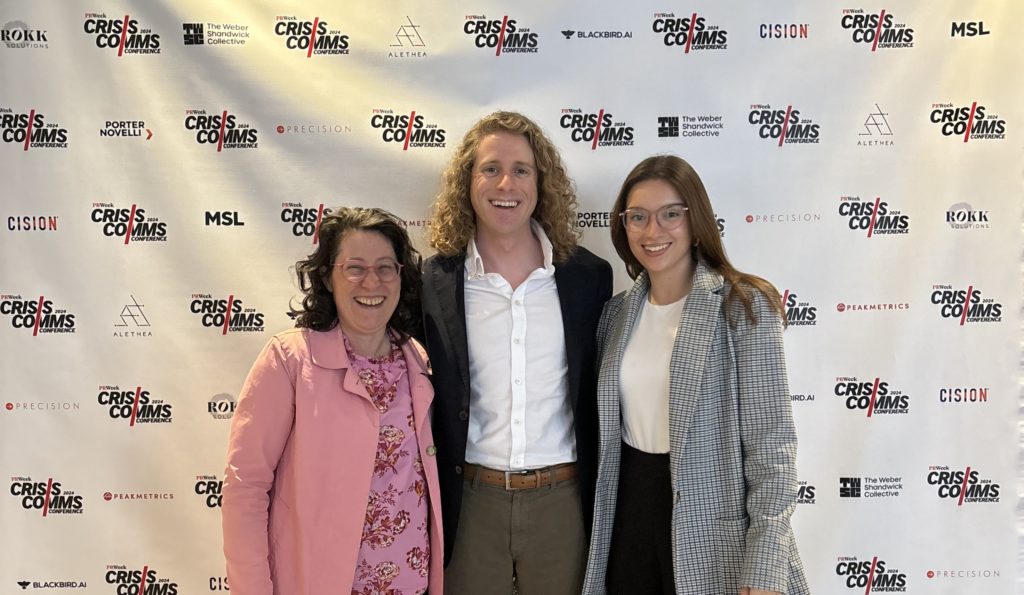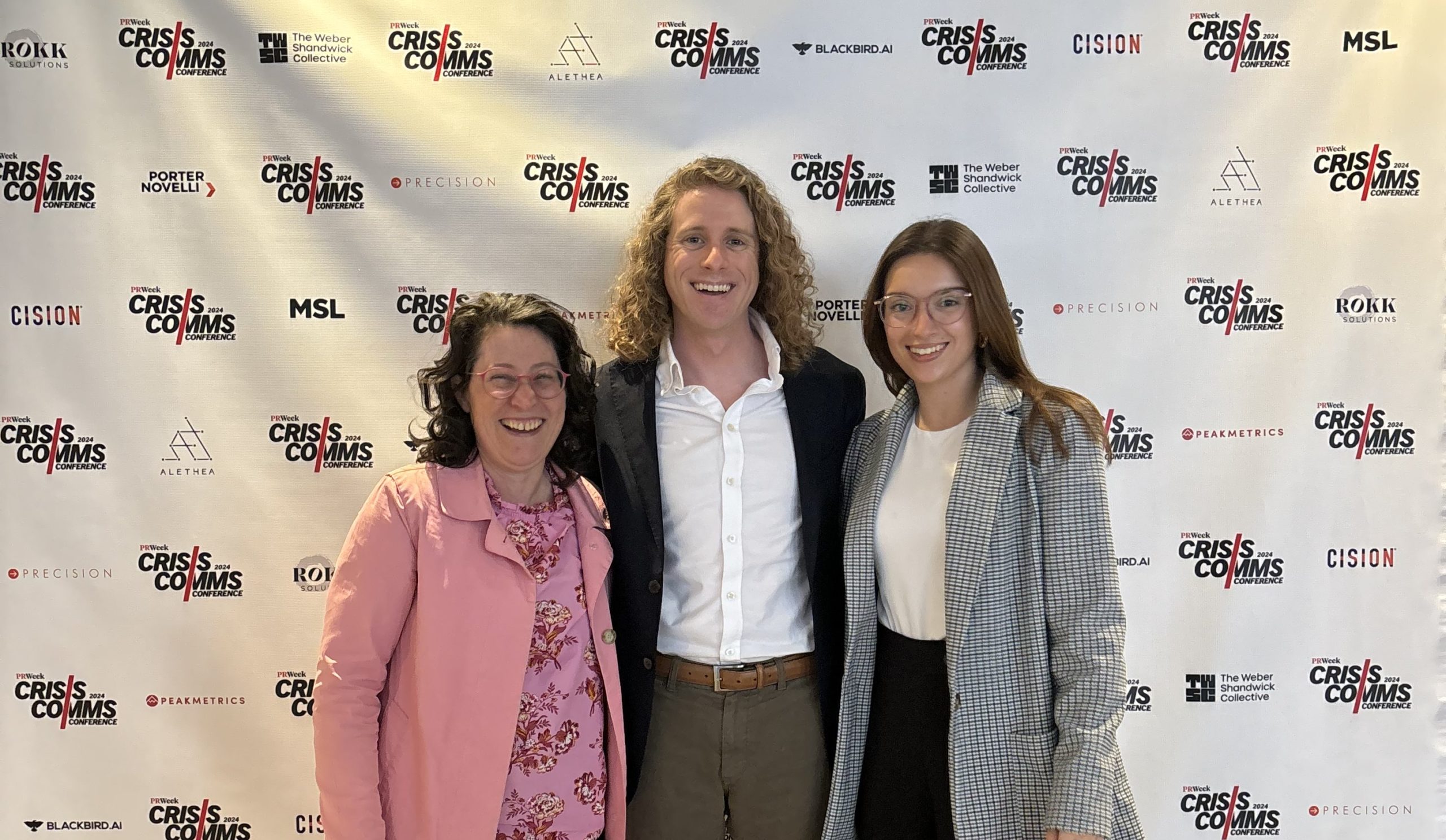By: Tara Greco, Executive Director, Jay Bryant, Senior Manager, and Jules Banks, Senior Associate
At Golin, we emphasize preparation as a key tenet to reputation management, especially when it comes to dealing with a crisis. Every organization has issues to monitor and manage, and sometimes you get pulled into an issue out of the blue. We believe that managing a crisis begins well before the issue lands on your desk. Things will go wrong, that’s a given. So, you want to have solid systems, protocols and connections to manage the issue and get back to basics as soon as possible.
A few of us were fortunate to spend the day in Washington, D.C. with fellow preparation crusaders for the PR Week Issues & Crisis Conference. The day was packed with insights, counsel and examples from leaders across industries and sectors who have been there and done that. It was both informational and inspirational, and we left the event charged up to bring some fresh perspectives to our clients. While we don’t have room to share everything we heard, we want to highlight a few notable nuggets from the roster of all-star panelists.
- Prioritizing communication to your top audiences in any crisis is key. Southwest Airlines’ SVP and CCO, Whitney Eichinger, shared how they navigated their December 2022 holiday meltdown that led to 16,900 flight cancellations – an incredibly difficult situation that she detailed with levity. They faced thousands of disappointed customers, yet Whitney noted that their primary audience during this crisis were their employees. Not only is Southwest an employee-first company, but employees are also on the front lines and can update customers real time, in a constantly evolving situation.
- Molson Coors Chief Communications Officer Adam Collins said out loud what many of us think about in the midst of managing an issue: “The CEO is not your audience. They care, but they are not your audience.” If you’re in the seat to lead a crisis response, remember to focus on the organization’s core and top audiences—who is impacted most, who is critical to help resolve the crisis—and build your strategy from there.
- AI is changing everything everywhere all at once. Throughout the day, speakers were reminding us to stay educated to understand how, and how fast, information is moving now in order to monitor and manage disinformation. There are many high-tech systems in the marketplace that can help, as well as some simple steps each of us can take. For example, several speakers underscored the need for organizations to always take their own video of an executive speaker, even at press conferences that are widely covered by media outlets. This way, you have your own source material with the metadata embedded to push back on deepfakes that may be created. The video doesn’t need to be high tech, just original.
- Now more than ever, influencers are the ultimate curators of trust between your brand and an audience. As Andrew Dawson, Industry Principal at Brandwatch, noted, 40% of millennials trust influencers – while only 26% trust traditional advertising. Andrew broke down the core tenets that help ensure success when picking the right creator, with questions that any communications leader can consider. Beyond pondering what your own brand’s audience would think about the partnership, how would the creators’ audience react? How does this individual create or erode trust?
- When it comes to communicating what your organization is doing in environmental sustainability or DEI, several panelists validated what we always tell our clients: return to your values to guide how you communicate the environmental and social efforts that are already baked into the business strategy. Sarah Fagen, former White House Political Director and Co-Founder and CEO of Tunnl, reminded us that when you find yourself in a “cultural war,” rely back on the business plan to communicate your priorities as you’re positioning the company for the future.
Navigating a crisis requires transparency, communication, and empathy. Being prepared can help organizations not only weather storms but emerge stronger and more resilient. If you’re currently dealing with a crisis or need assistance with your issues management strategy, reach out to us at [email protected]. We’re here to help.

